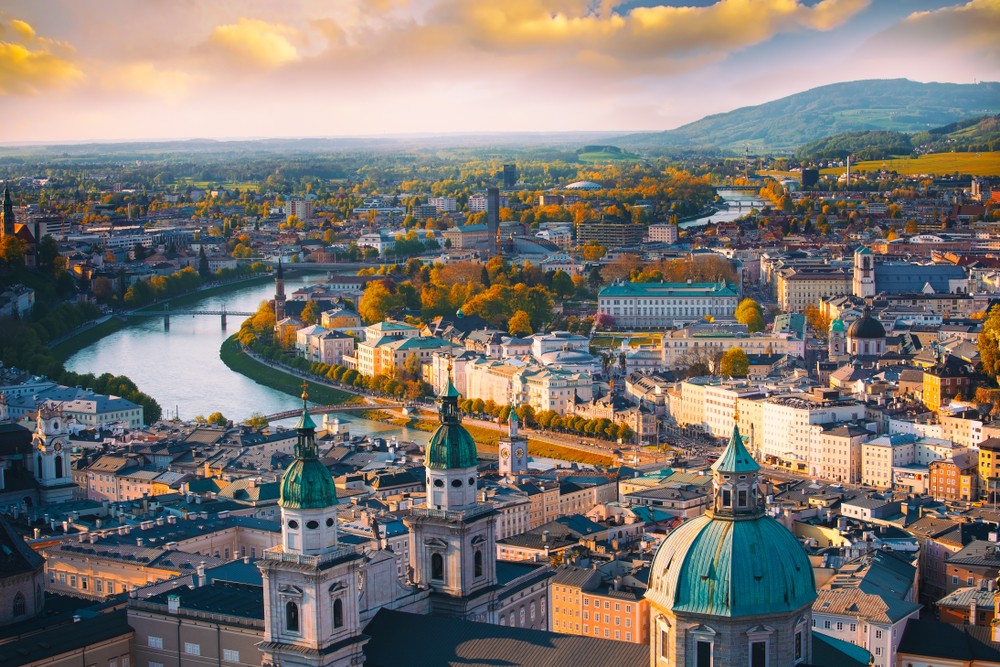As the world rapidly digitizes and businesses seek efficient and secure data solutions, Austria is emerging as a strategic location ripe with opportunities for data centre development. Benefitting from its situation at the border between western and eastern Europe, it is increasingly becoming a focus for the industry as the FLAP locations (Frankfurt – London - Amsterdam - Paris) are reaching their capacity limits, and we look for alternative opportunities.
As a Central European hub, Austria's geographical location offers connections to major European cities, making it ideal for companies looking to serve the broader European market. Capital city, Vienna is the central hub for data centres in Austria, profiting from excellent connectivity and infrastructure. It has become internationally recognised as a preferred location for headquarters and international offices – so much so that we recently decided to open an office there, having had a presence in the region for several years.
Interest in Vienna is reflected in our current client enquiries, with operators discussing the energy supply and investors looking at the financial viability. Here’s why Vienna is poised to become a hub for data centres, and how stakeholders can capitalise on this trend.
Strategic Location
Austria’s central geographic position within Europe makes it an ideal gateway for data traffic across the continent and beyond. Situated at the crossroads of major fibre optic networks, it offers unparalleled connectivity to Western and Eastern Europe, the Middle East, and even Asia. This strategic advantage minimizes latency and ensures robust network infrastructure critical for data-intensive operations such as cloud computing, IoT applications, and real-time data analytics.
Growing Digital Economy
Vienna is witnessing a rapid expansion of its digital economy, driven by a thriving tech ecosystem and established multinational corporations. This digital transformation generates substantial demand for reliable, scalable, and secure data storage and processing facilities.
It also offers an exceptional quality of life that attracts a talented workforce crucial for the tech industry. With its high standards of living, excellent healthcare, and educational institutions, Vienna provides an attractive environment for skilled professionals from around the globe.
Space and Power
However, despite its glowing credentials there are a number of space and power constraints that we need to consider before proclaiming Vienna the new promised land for tech.
In urban areas, finding suitable space for large-scale data centres can be challenging, along with ensuring an adequate power supply. Delivering a reliable and sufficient power supply for data centres is a significant challenge and as they expand, the demand for electricity increases, necessitating investments in energy infrastructure and renewable energy sources to meet sustainability goals.
In response to this, investments are now being made in Vienna into the energy infrastructure and the connections to the 380 KV ring (highest voltage service grid) are being extended and expanded. Service providers are aware of the interest in Vienna and authorities are trying to adjust to the circumstances to foster its new market position.
However, in order to ensure secure and sustainable energy supply for industry, commerce and housing in Vienna, data centre enquiries are only examined by the utility provider for technical feasibility and power connection availability after a thorough examination and assurance of the intention to realise the project. Only then will the utility provider issue a binding offer for power connection.
Organisations need to invest time and energy into building relationships with public administrations and key stakeholders from the get go. Working with communities from the planning stage can help developers to understand their concerns, and by owning the narrative they can in turn ensure that everyone is made aware of the potential benefits of data centre construction - how they can become a force for good within a community, a ‘grid asset’ reusing their heat to power various infrastructure within the city.
Green Energy Commitment
In terms of sustainable power sources Austria appears to be ahead of the curve with 87% of their electricity generated by renewable sources, 60% of that coming from hydro power. Vienna promotes eco-friendly initiatives, including energy-efficient building standards and renewable energy incentives. Data centres can leverage this green energy advantage to enhance their operational sustainability, reduce carbon footprints, and appeal to environmentally conscious businesses seeking eco-friendly hosting solutions.
Future Outlook
The Austrian data centre market is expected to continue growing, driven by digital transformation trends, the increasing demand for cloud-based services, and Austria's strategic importance in Europe's digital infrastructure landscape.
As businesses and investors increasingly prioritise digital infrastructure, Vienna offers a compelling proposition for establishing and expanding data centre operations, and with investments in renewable energy and advanced technologies it is likely to remain competitive in the global data centre market. By harnessing these opportunities, stakeholders can contribute to Vienna's emergence as a leading hub for data-driven innovation in Europe and beyond.




